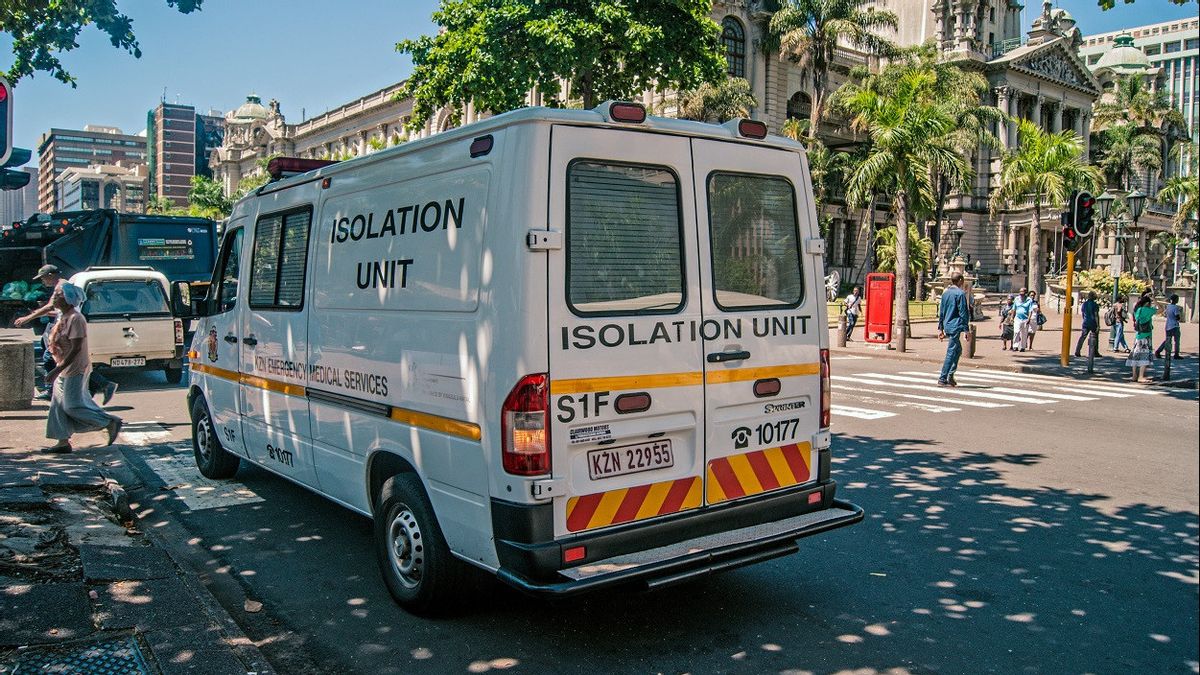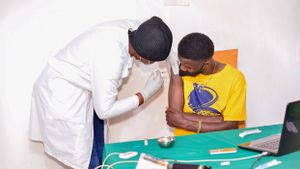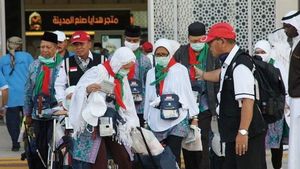JAKARTA - The variant of the Omicron coronavirus detected in southern Africa could be the most likely candidate to replace the highly contagious Delta variant, the director of the South African institute of infectious diseases said on Tuesday.
The discovery of the Omicron variant has caused global alarm, with countries restricting travel from South Africa for fear of the spread of this variant, including in vaccinated populations, with the WHO saying this variant carries a high risk of a spike in infections.
"We thought what would beat the Delta variant? It's always been a question, at least in terms of transmission, maybe this particular variant is the variant," Adrian Puren, acting executive director of South Africa's National Institute for Infectious Diseases (NICD) told Reuters, as quoted on December 1.
If the Omicron variant proves to be more infectious than the Delta variant, it could lead to a sharp spike in infections that could put pressure on hospitals.
Puren said scientists should know within four weeks to what extent the Omicron variant can evade the immunity generated by the vaccine or previous infection, and whether it leads to worse clinical symptoms than the other variants.
Anecdotal reports by doctors who have treated South African COVID-19 patients say the Omicron variant appears to produce mild symptoms, including a dry cough, fever, and night sweats, but experts have warned against drawing firm conclusions.
Puren further said it was too early to say whether Omicron replaced Delta in South Africa, as local scientists have produced only 87 Omicron sequences so far.
However, the fact that cases are starting to rise rapidly, especially in the most populous Gauteng Province, is a sign that some displacement may already be taking place.
To note, the Delta variant prompted the third wave of COVID-19 infections in South Africa which peaked at more than 26,000 cases per day in early July.
Meanwhile, the Omicron variant is expected to trigger the fourth wave, with daily infections seen hitting 10,000 by the end of the week from around 2,270 on Monday.
Separately, Anne von Gottberg, clinical microbiologist at the NICD, said it looks like infections are increasing across the country.
On Monday, the NICD presentation marked the large number of acceptances of COVID-19 among infants under two years of age as an area of concern. However, von Gottberg cautions against associating it with the Omicron variant just yet.
"It seems that some of that reception may have started before the appearance of the Omicron variant. We've also seen an increase in influenza cases just in the last month or so, so we have to be really careful to look at other respiratory infections."
SEE ALSO:
"We look at the data very, very carefully, but at this point, I'm not too sure that we can definitively link it to Omicron."
South Africa has been credited with alerting the global scientific community and WHO so quickly to the Omicron variant, a bold move given the impact travel restrictions imposed by several countries including the UK on its vital tourism sector will have.
The country has reported nearly 3 million COVID-19 infections during the pandemic and more than 89,000 deaths, the most on the African continent.
The English, Chinese, Japanese, Arabic, and French versions are automatically generated by the AI. So there may still be inaccuracies in translating, please always see Indonesian as our main language. (system supported by DigitalSiber.id)


















